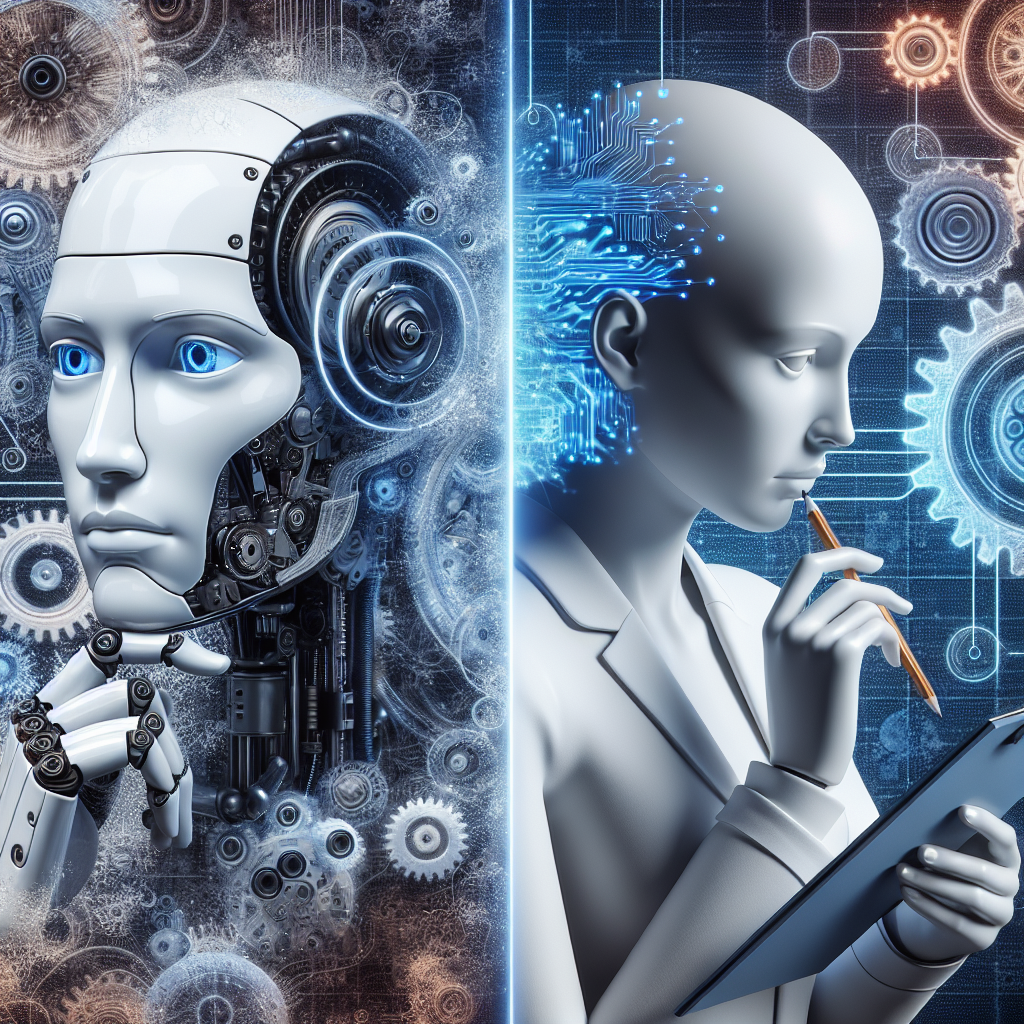Artificial General Intelligence (AGI) is a term that refers to the hypothetical ability of a machine to perform any intellectual task that a human can do. This encompasses a wide range of cognitive abilities, including reasoning, problem-solving, learning, and understanding natural language. The development of AGI has been a long-standing goal in the field of artificial intelligence (AI), with researchers working towards creating machines that can autonomously carry out complex tasks and exhibit human-like intelligence.
As technology continues to advance at a rapid pace, the potential impact of AGI on society and the economy is a topic of increasing interest and concern. In this article, we will explore the implications of AGI compared to human intelligence, considering the benefits, challenges, and ethical considerations that arise from the development of such advanced systems.
Advantages of AGI
One of the key advantages of AGI is its potential to revolutionize various industries and sectors. Machines with human-like intelligence could perform tasks more efficiently and accurately than humans, leading to increased productivity and innovation. AGI could also help address complex problems in fields such as healthcare, finance, and transportation by providing insights and solutions that may not be readily apparent to human experts.
Another advantage of AGI is its scalability and adaptability. Unlike human workers, machines can be easily replicated and deployed across different settings, making it possible to leverage their intelligence on a global scale. AGI systems could also continuously learn and improve over time, allowing them to stay up-to-date with the latest information and trends in their respective domains.
Challenges of AGI
Despite the potential benefits of AGI, there are also significant challenges that must be addressed before such systems can be safely deployed. One of the primary concerns is the risk of unintended consequences, such as bias, errors, and misuse of AGI technology. Without proper safeguards and regulations in place, AGI systems could inadvertently harm individuals or society as a whole.
Another challenge is the ethical implications of AGI, particularly in terms of job displacement and societal impact. As machines become increasingly capable of performing human tasks, there is a growing concern that large segments of the workforce could be rendered obsolete, leading to widespread unemployment and economic disruption. Additionally, the use of AGI in decision-making processes raises questions about accountability, transparency, and fairness, as these systems may not always operate in a manner that aligns with human values and norms.
Potential Impact of AGI
The potential impact of AGI on society and the economy is multifaceted, with both positive and negative consequences to consider. On one hand, AGI has the potential to drive innovation, improve efficiency, and enhance human capabilities in ways that were previously unimaginable. By automating routine tasks and augmenting human intelligence, AGI could enable individuals and organizations to achieve new levels of productivity and creativity.
On the other hand, the widespread adoption of AGI could also have far-reaching implications for the labor market, social inequality, and ethical decision-making. As machines increasingly take on roles traditionally performed by humans, there is a risk that certain jobs will be eliminated or devalued, leading to a widening gap between the haves and have-nots. Furthermore, the use of AGI in sensitive areas such as healthcare, criminal justice, and national security raises concerns about privacy, autonomy, and the potential for abuse by powerful actors.
FAQs
Q: What is the difference between AGI and human intelligence?
A: AGI refers to the ability of a machine to perform any intellectual task that a human can do, while human intelligence encompasses a wide range of cognitive abilities, emotions, and social skills that are unique to humans. While AGI may be able to replicate certain aspects of human intelligence, such as problem-solving and reasoning, it lacks the depth and complexity of human consciousness and creativity.
Q: How close are we to achieving AGI?
A: The development of AGI is still in its early stages, with researchers making steady progress in areas such as machine learning, natural language processing, and robotics. While some experts believe that AGI could be achieved within the next few decades, others remain skeptical of the feasibility and ethical implications of creating machines with human-like intelligence.
Q: What are the potential benefits of AGI?
A: AGI has the potential to revolutionize various industries and sectors by automating tasks, improving efficiency, and driving innovation. By leveraging the intelligence of machines, organizations can gain new insights, make better decisions, and enhance their competitive advantage in the global marketplace.
Q: What are the risks of AGI?
A: The risks of AGI include unintended consequences, bias, errors, and misuse of technology. Without proper safeguards and regulations in place, AGI systems could pose a threat to individuals and society by making decisions that are harmful, unfair, or unethical. Additionally, the widespread adoption of AGI could lead to job displacement, social inequality, and other negative consequences for the economy and society.
In conclusion, the development of AGI has the potential to transform the way we live, work, and interact with technology. While the benefits of AGI are vast and promising, there are also significant challenges and risks that must be addressed in order to ensure that such advanced systems are deployed responsibly and ethically. By exploring the potential impact of AGI compared to human intelligence, we can better understand the implications of this emerging technology and its implications for the future of society.

